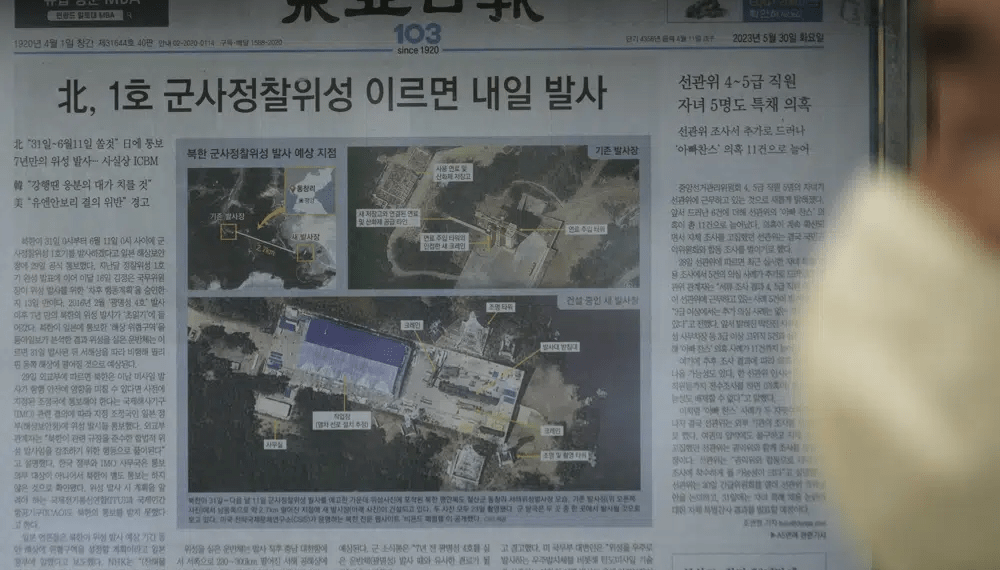Describing the space-based reconnaissance as pertinent for monitoring the United States’ “reckless” military exercises with South Korea, the North has announced that it would launch its first military spy satellite in June.
This comes after North Korea notified Japan’s coast guard on Monday, May 29, 2023, that the launch, sometime between May 31 and June 11, 2023, might affect waters in the Yellow Sea, East China Sea and east of the Philippines’ Luzon Island.
This prompted Japan’s Defense Minister, Yasukazu Hamada, to order its forces to shoot down the satellite or debris, if any entered Japanese territory, and its coast guard issued a safety warning for ships that would be in the affected seas during the expected launch, citing a risk of falling debris.
While North Korea’s rivals have decried the country’s planned launch as a banned test of ballistic missile technology, it is uncertain whether the satellite itself is advanced enough to support the North’s stated goals of tracking and monitoring U.S. and South Korean military activities in real time.
The pace of both North Korea’s weapons testing and the U.S.-South Korean joint military exercises quickened in past months in what seems as a retaliatory cycle.
In comments released by North Korean state media, senior military official Ri Pyong Chol denounced the combined U.S.-South Korean military exercises, which Pyongyang has long described as invasion rehearsals. He said that North Korea considers space-based reconnaissance “indispensable” to monitor the military exercises.

Last week, the South Korean and U.S. militaries conducted large-scale live-fire drills near the border with North Korea; the first of five rounds of exercises marking 70 years since the establishment of their alliance. Washington and Seoul describe their regular military exercises as defensive and have expanded their training since 2022 to cope with the North’s evolving threats.
Ri disclosed that the extensive U.S.-South Korean drills and other military activities emphasize their “sinister intention” to prepare for preemptive military action against North Korea.
He added that the “dangerous military acts by the U.S.” and its forces created a concerning security environment that makes it necessary for Pyongyang to gather real-time, reliable information on military movements in the region.
South Korea Urges North Korea To Cancel Its Launch Plans

At a briefing, South Korean Foreign Ministry Spokesperson, Lim Soo-suk averred, “It’s absurd to use our legitimate joint exercises, and the maintenance of the South Korea-US joint defense posture to respond to advancing North Korean nuclear and missile threats, as an excuse to launch a reconnaissance satellite.”
“We strongly urge North Korea to immediately cancel its launch plans,” Lim added.
Han Sung Geun, Spokesperson of South Korea’s Joint Chiefs of Staff, noted at a briefing that the South Korean and U.S. militaries were closely monitoring North Korea over the possible satellite launch and other provocative military moves.
Han did not divulge specific assessments about the potential capabilities of the North Korean satellite and refused to say whether the South Korean military was preparing for the possibility that debris could fall in nearby waters.
Meanwhile, South Korea warned on Monday that North Korea will face consequences if it goes ahead with the satellite launch in violation of United Nations Security Council resolutions, which ban the North from conducting any launch using ballistic technology.
Space-launch vehicles for satellites share core technologies with long-range missiles that are built to deliver warheads aimed at destroying intercontinental targets.
Last week, South Korea launched its first commercial-grade satellite, which according to experts, could provide Seoul with key technology and expertise to place its first military spy satellite into orbit later this year and build more powerful missiles.





















